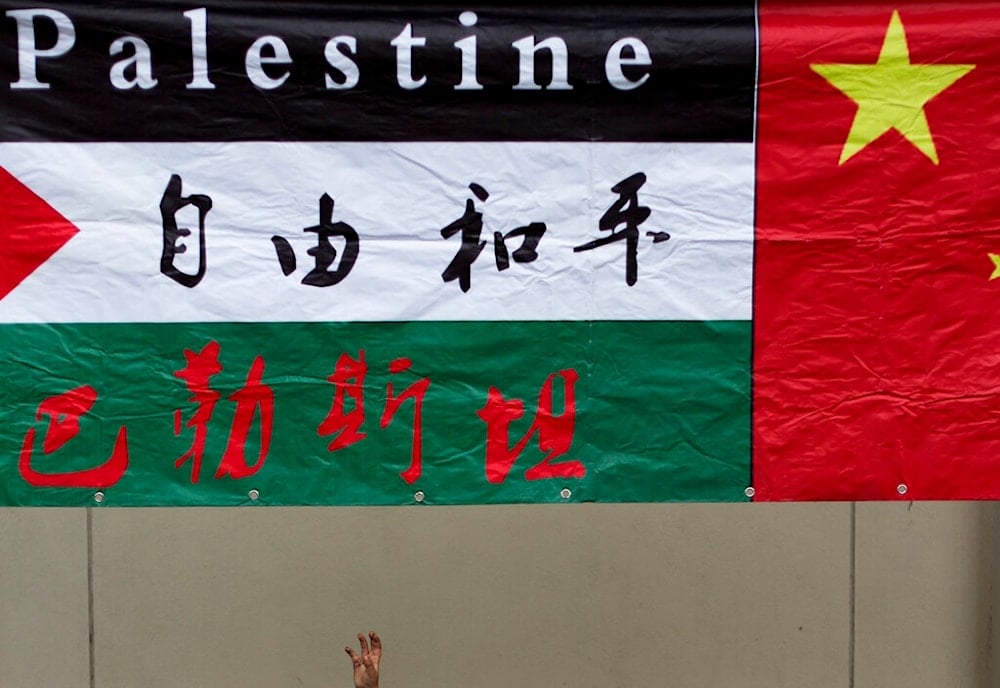China renews push for Palestinian unity with new Beijing talks
The invitations come one year after the signing of the Beijing Declaration, a landmark agreement that brought together Fatah, Hamas, and 12 other Palestinian factions on July 23, 2024.
-

A child tries to reach a Palestinian flag baring the words "Free and Peace" hanging beside a Chinese national flag during a protest against Israeli airstrikes on Gaza, outside the Palestine Embassy in Beijing Friday, July 18, 2014. (AP)
China on Thursday issued official invitations to Hamas leadership to visit Beijing, via its ambassador in Doha, as part of efforts to advance the Beijing Dialogue process and implement previously agreed commitments. The move reflects Beijing's continued engagement in intra-Palestinian reconciliation efforts and follows a similar invitation extended to Azzam al-Ahmad of the Fatah movement.
The invitations come one year after the signing of the Beijing Declaration, a landmark agreement that brought together Fatah, Hamas, and 12 other Palestinian factions on July 23, 2024, for a two-day dialogue in the Chinese capital. The declaration aimed to resolve the political fragmentation that has divided the Palestinian leadership since 2007, and laid the foundation for a temporary national unity government tasked with overseeing governance across all Palestinian territories, including the West Bank, Gaza Strip, and al-Quds.
The declaration also reaffirmed the right of Palestinians to resist occupation under international law and reiterated a commitment to establishing an independent Palestinian state with al-Quds as its capital, based on UN Resolutions 181 and 2334. It further called for lifting the siege on Gaza and delivering unrestricted humanitarian aid, while defending religious and national rights in al-Quds, particularly in response to continued Israeli violations against Al-Aqsa Mosque.
Chinese Foreign Minister Wang Yi hailed the outcome at the time, stating that all Palestinian factions "firmly expressed their readiness to advance reconciliation and their determination to uphold national interests." The agreement also committed to regular meetings under the Unified Temporary Leadership Framework, with implementation to be monitored in coordination with China, Egypt, Algeria, and Russia.
Read more: China opposes Trump's plan of 'relocating' Gazans and taking over
At the time of its implementation, the declaration was welcomed by the United Nations, Arab League, and regional observers.
China's mediation in the Palestinian dialogue comes as part of its broader diplomatic ambitions in the Middle East. Following its successful brokering of the Saudi-Iranian rapprochement in 2023, Beijing has positioned itself as a non-Western alternative peace broker, offering a model of engagement distinct from the US-led peace frameworks that have faltered over the years. Its deepening involvement in the Palestinian issue signals a growing willingness to shape regional diplomacy and support political realignment efforts through dialogue and multipolar engagement.

 3 Min Read
3 Min Read










